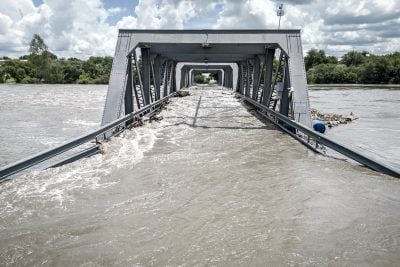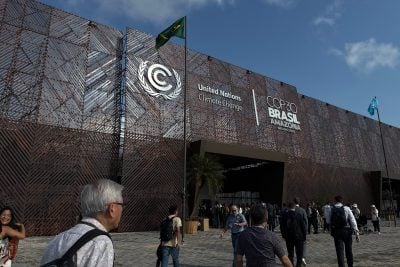Ethiopia has completed the third filling of the reservoir behind its Grand Ethiopian Renaissance Dam (GERD) without reaching an agreement on the use of Blue Nile waters with its downstream neighbours Egypt and Sudan.
The two former countries are dependent on Nile waters and fear that the filling of the reservoir, which has a capacity of 74 cubic km, will reduce the water available to them.
The news was announced on Ethiopian television on 12 August, a day after power from a second turbine was switched on, following the inauguration of the dam in February (see below).
The Office of the Prime Minister of Ethiopia released a message on Twitter saying that Ethiopia “takes what it deserves while passing on what others deserve” and congratulated all Africans on this “milestone”.
On 29 July, Egypt’s foreign minister, Sameh Shoukry, sent a letter to the president of the UN security council expressing “total rejection” of Ethiopia’s approach to filling the reservoir, according to Egypt Today.
Long-running dispute
The building of the GERD has been the object of a long-running dispute between Nile downstream countries Egypt and Sudan, on the one hand, and Ethiopia, where the Blue Nile rises, on the other.
The Nile contributes 90% of Egypt’s fresh water and underpins its irrigation and power generation.
Talks between the parties broke down in 2020. Egypt insisted that filling of the dam should not proceed without agreement and took the matter to the UN Security Council, which called for the resumption of AU-led negotiations to reach a binding agreement.
While Egypt and Sudan fear for their water security, Ethiopia wishes to press ahead with the project, which will double its electricity output to 16,000 GW and help to provide power for the 44% of Ethiopia’s households have access to electricity.
In July, President Joe Biden reiterated US support for Egypt’s water security and to forging an agreement over use of the waters of the Nile that will be in the interest of all parties.
In a joint statement with President Sisi of Egypt issued after their meeting in Jeddah on 16 July, he reiterated “the imperative of concluding an agreement on the filling and operation of the GERD without further delay as stipulated in the Statement of the President of the United Nations Security Council dated September 15, 2021, and in accordance with international law,” according to a statement from the White House.
Ethiopia switches on dam
On 21 February, Ethiopia’s prime minister Abiy Ahmed officially inaugurated the dam, which began producing power from a 375 MW turbine.

Addis Ababa claims that the electricity generated by the dam will benefit not only Ethiopia but the entire region.
In a 2020 article for African Business, academics Addisu Lashitew of the Brookings Institution and Haim Kassa of Miami University argued that Egypt should be able to absorb temporary shortfalls by releasing water from the Aswan High Dam and said that “Egypt and Sudan will enjoy a special priority in terms of power exports from the GERD”.
But in June, Al Monitor reported President Sisi as saying “I won’t say much except that [no] one will touch Egypt’s water”, while an anonymous Egyptian diplomat claimed that “The basic item of negotiation, which is to reach a comprehensive and legally binding agreement on the dam’s filling and operation, is still not recognised by Ethiopia, which is at the core of the problem.”
Article updated on 13 August 2022.
Want to continue reading? Subscribe today.
You've read all your free articles for this month! Subscribe now to enjoy full access to our content.
Digital Monthly
£8.00 / month
Receive full unlimited access to our articles, opinions, podcasts and more.
Digital Yearly
£70.00 / year
Our best value offer - save £26 and gain access to all of our digital content for an entire year!
 Sign in with Google
Sign in with Google 



